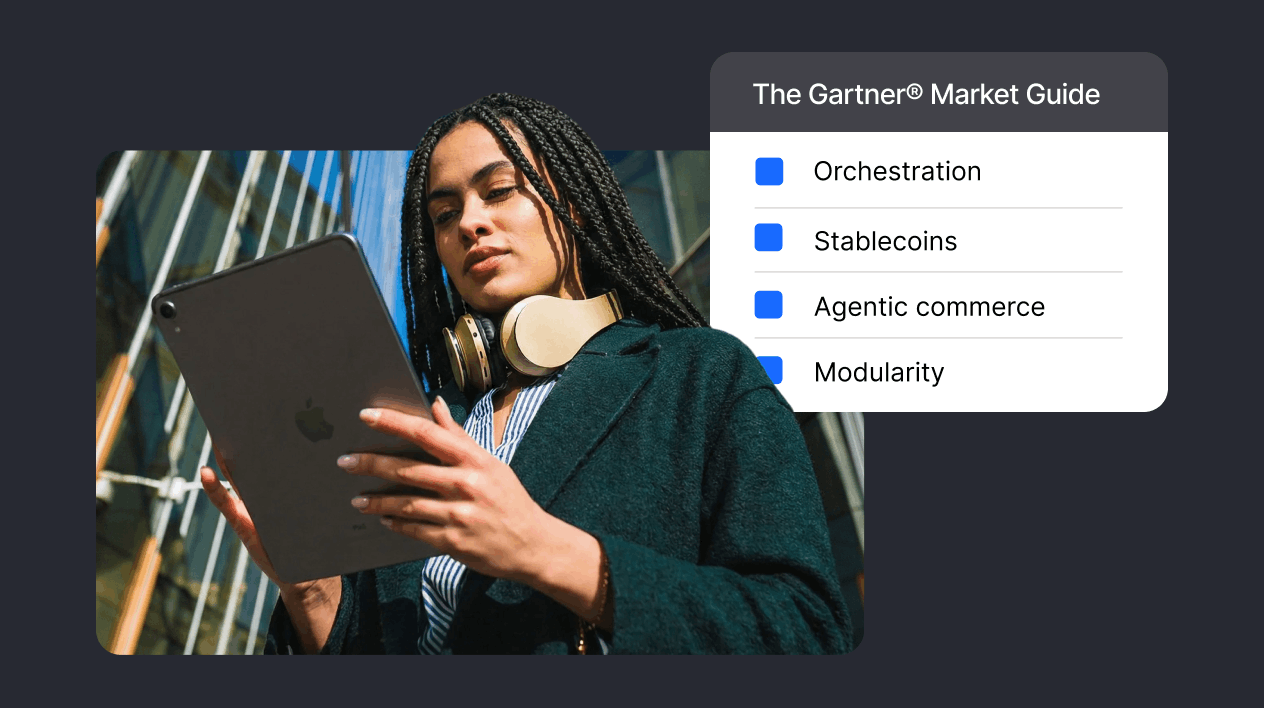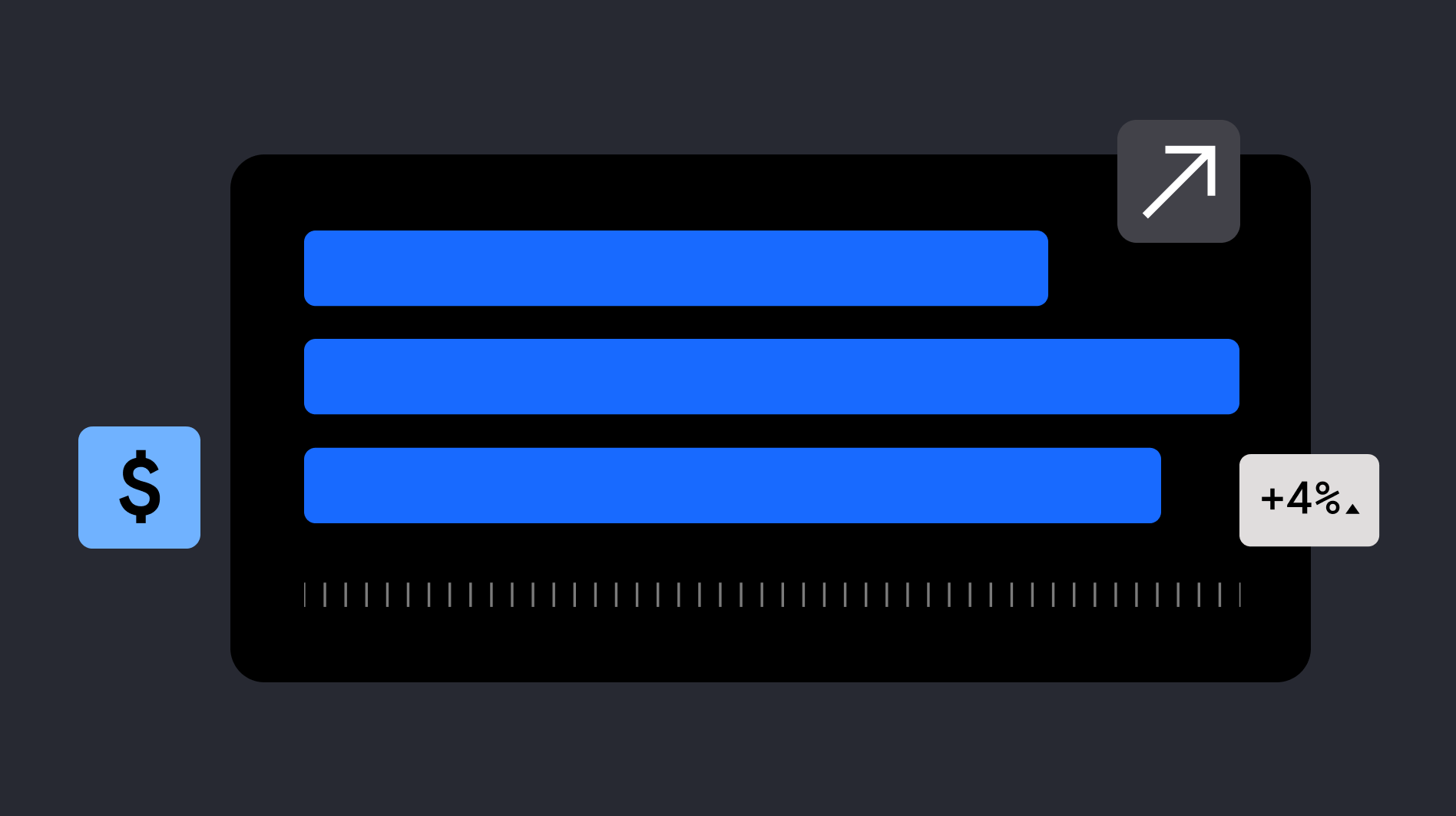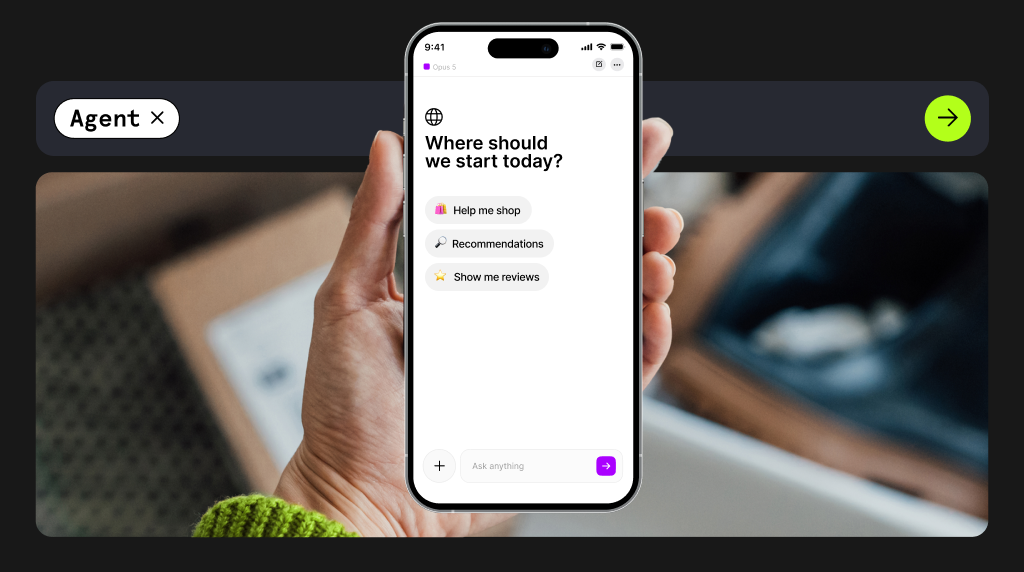Buzzing with inspiration from Money2020 in Las Vegas, Zack Levine, Head of North America at Checkout, was pleased to join Libby Bostain, Head of Global Partnerships at Klarna for a fireside chat. The pair reflected on fintech industry disruption, international expansion, sustaining growth in an uncertain market. Their conversation illuminated the nuances in strategic decision-making as they both seek to expand market share in the US.
Having previously worked in brand management at Unilever, Libby moved on to Jet.com, an ecommerce startup quickly acquired by Walmart eCommerce in 2016. Libby spent three years as a category lead at Walmart before joining Klarna’s business development team in 2020. In her current role, Libby is focused on growth strategy through distribution partners.
Here’s what they had to say on their journey of North American expansion this year and beyond.
Powerful alternatives to legacy players
Both Klarna and Checkout are focused on bringing fast and easy payments to digital-age consumers. At 20 and 13 years old, respectively, it’s no surprise the fintech outfits share a bold raison d’être of disrupting traditional money movement systems.
“I’m inspired by the quote from Jordan Reynolds, MALPB CEO and Head of North America Banking, about Checkout being a powerful alternative to legacy and incumbent players in the market,” Libby said. “And that struck me because I feel like that's another thing that we have in common. We're here challenging the traditional way that things are done.”
It’s been a huge year for Klarna: a long-awaited New York IPO in September, expansion of its debit card offering in Europe following a successful US pilot, plus a new premium membership to rival traditional credit cards. While Klarna has long been much more than a buy now, pay later company, this year marked another decisive step toward becoming a fully fledged, digital bank.
“It's all about trying new stuff,” Libby said. Which sounds simple enough, yet is so rarely seen in payment services from mainstream banks. “We talk to the customers and understand what they need,” she added. And they must be doing something right, as Klarna has 114 million global active users and 850,000 retailers plugged in.
Checkout’s global footprint is also growing: launching in Canada this year, and having our application for a banking charter in Georgia accepted. “We've always been a global company,” said Zack. “We're becoming more and more global by the day.” For Zack, Checkout’s international expansion helps to ensure merchants can access sharp in-market expertise, and meaningfully meet local consumer expectations. A lack of appropriate localized payment services can seriously harm profitability. After all, 50% of merchants said failure to properly activate local payment methods in new markets caused significantly lower-than-expected sales.
Zack added: “Even as we've scaled, we've also been really intentional about making sure that we continuously raise the bar.” That means providing vertical-specific consultation, as well as technical payment support.
Set up to pivot quickly
Libby reflects that both Klarna and Checkout have remained agile, and moved quickly through shifts in fintech. In particular, each focused on innovations to serve demand for increased shopping via smartphone, and more flexible consumer finance options.
To keep up, Libby explained how working groups are able to make decisions quickly. “At Klarna, we keep our teams small. We don't have teams bigger than eight-ish people.”
It’s not only the size of the team, but also how much autonomy each has to make decisions and try new things. Teams are “empowered to go out and solve [their] problem space” with the support of “functional leaders to help unblock and escalate things, too.”
After a period of significant investment to secure its leading place in the US market, Klarna pivoted rapidly to focus on profitability in 2022. “We became profitable in less than a year. And we’re a large company.” Libby says AI adoption was part of this, but mainly credits “our structure and the mindset of team leaders.”
Libby noted how AI with a light human touch has helped to provide more effective customer service. Within Klarna, commercial teams are also using AI tools to support commercial operations. “We can do more, we can have more outreach, we can have more meetings,” she explained.
AI and agentic commerce for smarter shopping
“We’re super bullish on AI. We have a really strong partnership with OpenAI,” Libby shared. “We’re constantly innovating and working with the biggest AI companies and our partners, like Checkout, to figure out what’s the next stage of [AI innovation] and what does it mean for shopping and retail and payments?”
It’s an exciting time for Libby, who sees AI innovations such as agentic commerce as a catalyst to surfacing products and payment options more effectively. “We want to be in the conversation around how can BNPL and wallets like Klarna do what we do for regular human shopping, like increase conversion, [and] be an option higher up in the funnel so that whether it's a consumer shopping or whether it's an agent shopping, knowing that's available and knowing that there's more purchase power.”
In addition to flexible payment options, Klarna already provides customers with price comparisons on products after acquiring Europe-based PriceRunner in 2022. “We're surfacing products based on all sorts of data and where can you buy this for the best price, things like that,” Libby said. “So I think Klarna has a lot to offer, too, in the agentic protocol space in terms of merchants who we already work with who are surfacing those options.”
Standing out in a crowded market
The mid 2010s marked the beginning of a slew of new fintech services, as non-banks increasingly partnered with regulated financial institutions to offer consumers a wider range of payment choices. Entering the US in 2015, Klarna has outlasted peers such as Blispay and OpenPay, which sank in the volatile years of 2021 and 2022.
Libby explained how Klarna turned pressure into performance: “When the competition heats up, it's a good thing. It's motivating [us] to do better, and give feedback to our product teams on what's working, what's not.”
“It’s also validating that this is a category that was ripe for disruption,” she reflected. “The merchants want it, the consumers want it,” adding, “There’s room for disruption and there’s room for multiple winners.”
The competition prompted Klarna to “get really sharp commercially, [and] understand what the merchants need.” To that end, Klarna positioned itself as a Millennial-friendly alternative to traditional retail credit options. “We really invest a lot of time and resources in building a brand that consumers connect with,” Libby mused, counting off the big name musicians who have appeared in Klarna PR campaigns: Snoop Dogg, Lady Gaga, and A$AP Rocky.
Winning market share through great customer experience
The fintech makes an effort to speak to individual customers to learn more about their experiences using Klarna.
In a similar vein, Checkout holds detailed QBRs (quarterly business reviews) to explain payment performance over time, as well as closely tracking merchant satisfaction scores, and taking on detailed feedback. Zack understood that Checkout would need to provide a generous range of payment methods to appeal to North American merchants.
When entering the US, Klarna found success in expanding in its core verticals of fashion, retail, cosmetics, and beauty. For example, a customer that discovers Klarna as a payment option at Sephora will hopefully have such a great experience that they feel encouraged to use it again at other retailers. Responsive customer service, useful in-app features, and a considered post-purchase journey are all carefully crafted to ensure maximum customer loyalty.
Gaining traction this year, Klarna continued to extend its offering beyond infrequent, higher-value purchases such as premium cosmetics. For instance, Klarna forged a partnership with Instacart on everyday payments for groceries.
With so many opportunities on the table, fast-growing businesses like Klarna and Checkout must choose partnerships wisely.
Selecting partnerships
Webinar listeners were eager to know how to choose partners that would bring about the greatest benefits. Libby advised choosing those “equally ambitious to grow.” Of Klarna’s alliance with Checkout, she commented: “Our companies partner so well together because we're on a similar mission: to do things differently and break some of the traditional ways that our industry has been built.”
Zack agreed: “There's no one who's able to do everything on their own. One of the biggest filtration mechanisms we have is, how easy is it to do business with them?” He mentioned screening for a similar ethos and a shared motivation to put customer needs first.
To scale partnerships effectively, merchants will benefit from understanding how the chosen partner operates in all their different markets. To that end, Libby advises making the effort to understand how the organization’s structure works, to work out who’s best to connect with.
Sustaining future growth
Looking to the future, Libby enthused: “Global expansion continues to be a really big focus for us. So partnering with companies like Checkout that are truly global is so important to us. We're going to be launching in new markets together, and we're going to be able to support merchants in an even better way.”
Zack added that alongside partnerships, there are product releases and headcount increases ahead. “We're excited about our growth into platforms. We're excited about issuing. The fact that we're going to have three different acquiring BINs in the US, including our own, is a really big deal.”
As NORAM leader, Zack knows choosing the right team members is critical. He’s committed to hiring folk who are “authentic, sincere and get energy building long-term relationships” because Checkout’s merchants are looking to solve complex problems. “We're looking to get better every day, constantly improve, and constantly evolve.”





.jpeg)


%20v1.jpg)


.png)

.png)


